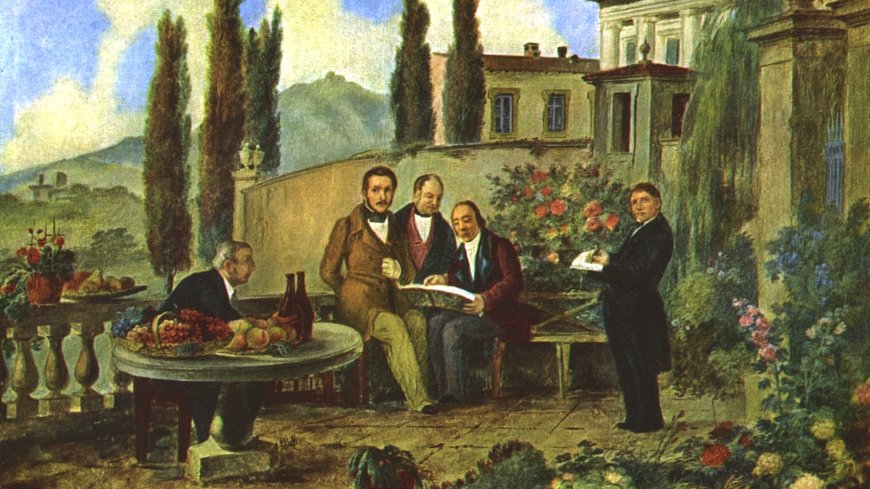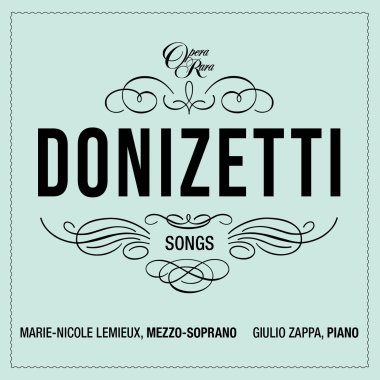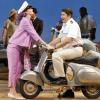
Earlier this year, Opera Rara released the latest recordings in its invaluable Donizetti Song Project. Vol. 3 features baritenor Michael Spyres performing 18 selections with pianist Carlo Rizzi, Opera Rara’s artistic director. In Vol. 4, contralto Marie-Nicole Lemieux performs 21 songs with pianist Giulio Zappa. Spyres and Lemieux are two of the classical world’s finest singers, and the repertoire highlights their strengths.
Although the stage works of Gaetano Donizetti remain among the most popular operas today, it took two years of research by musicologist Roger Parker, in collaboration with Ian Schofield, to uncover the nearly 200 songs by the composer that are now collected in Parker’s scholarly edition for Casa Ricordi. At least 16 of these songs were recently uncovered in Kremsmünster Abbey, a Benedictine monastery in Austria situated between Salzburg and Linz, and many more had never been recorded. Parker’s volume offers more than 1,500 pages of engraved music and 500 pages of commentary, and some of this material is included in Opera Rara’s extensive album booklets.

Viewed purely as an opportunity to revel in the glories of the human voice, the project is a gold mine. Spyres, for example, immediately demonstrates what he can do by somewhat capriciously altering his tonal envelope from light to heavy on the exciting “Léger coursier, plus léger que le daim” (Nimble steed, nimbler than the deer). Composed in Paris during the final stage of Donizetti’s career — he died of syphilis in 1848 before his 51st birthday — the song’s thrilling melody and execution bode well for what is to follow.
Although Spyres rarely ascends to the top of his range here, his wonderful voice is in prime form throughout. For those who hunger for thrills, he shares a gorgeous, full-voiced high C at the climax of the beautiful “Je ne me plaignais pas” (I didn’t complain), part of whose melody was reused in Marie’s aria “Il faut partir” in the opera La fille du régiment. Every note from Spyres’s throat is a joy to listen to.
The Quebec-born Lemieux has a voice surprisingly agile given its richness; she falters only once, while executing the supremely challenging Rossini-like ornamentation of “Quel nome se ascolto” (If I hear that name). But even then, she’s a compelling performer. My only quibble is that if you don’t know what she’s singing about, you might confuse urgent passion for tongue-in-cheek humor. In such cases, it’s best to stick to enjoying how wonderfully her sound pours forth.
Opera Rara scores major points by recording in high resolution to show off the full glories of these voices. Where the engineering disappoints, however, is in its treatment of the piano as no more than background accompaniment. For contrast, listen to Pentatone’s superb engineering on the recently released L’extase, on which mezzo-soprano Magdalena Kožená shares equal billing with pianist Mitsuko Uchida. Then again, Kožená’s repertoire occupies a completely different sound world from Donizetti’s songs.
As you might expect, compositional quality varies among the 39 songs on these two recordings. Some are beautiful and captivating, some are delightfully light parlor songs, and yet others are terribly old-fashioned in their subject matter and/or mode of expression. Perhaps too much to be consumed in one sitting, they are best savored one or two at a time. However you listen, you will likely discover any number of new favorites.




